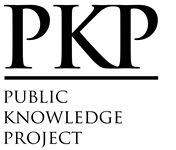Contamination by Remazol Red Brilliant Dye and Its Impact in Aquatic Photosynthetic Microbiota
Abstract
The purpose of this work was to evaluate the heterogeneity and diversity of algae according to an aquatic environment polluted by Remazol Red Brilliant dye. Methodology followed Winogradsky columns technique, which describes a microecosystem in a glass container. Two columns were prepared: one control and another with Remazol Red Brilliant dye simulating a contaminated environment. The experiment was under illumination to provide light energy to photosynthetic organisms and alteration in two columns were observed and quantified: algae development and color changes. Results demonstrated that pH remained constant in control column; however the initial pH changed in contaminated column. A higher pH observed at the bottom after 48 days showed microbial activity in dye biodegradation, which was corroborated by minor absorbance value at Remazol Red Brilliant peak (541.5 nm). Moreover, control column presented higher algae growth since the beginning owing to the dye absence and 12 different families were identified in two Winogradsky column. This analysis concluded that, despite the greater diversity found in B, algae biomass production was much smaller compared to column without the dye. Therefore, Remazol Red Brilliant presence would affect the food chain in aquatic environments and consequently causes an ecological imbalance by the textile effluent impact.
Full Text:
PDFDOI: https://doi.org/10.5296/emsd.v1i2.2512
Refbacks
- There are currently no refbacks.
Copyright (c) 2012 Mariana Lopes de Sousa, Peterson Bueno de Moraes, Paulo Renato Matos Lopes, Renato Nallin Montagnolli, Dejanira de Fransceschi de Angelis, Ederio Dino Bidoia

This work is licensed under a Creative Commons Attribution 4.0 International License.
Environmental Management and Sustainable Development ISSN 2164-7682
Copyright © Macrothink Institute
To make sure that you can receive messages from us, please add the 'macrothink.org' domain to your e-mail 'safe list'. If you do not receive e-mail in your 'inbox', check your 'bulk mail' or 'junk mail' folders.
------------------------------------------------------------------------------------------------------------------------------------------------------------------------
